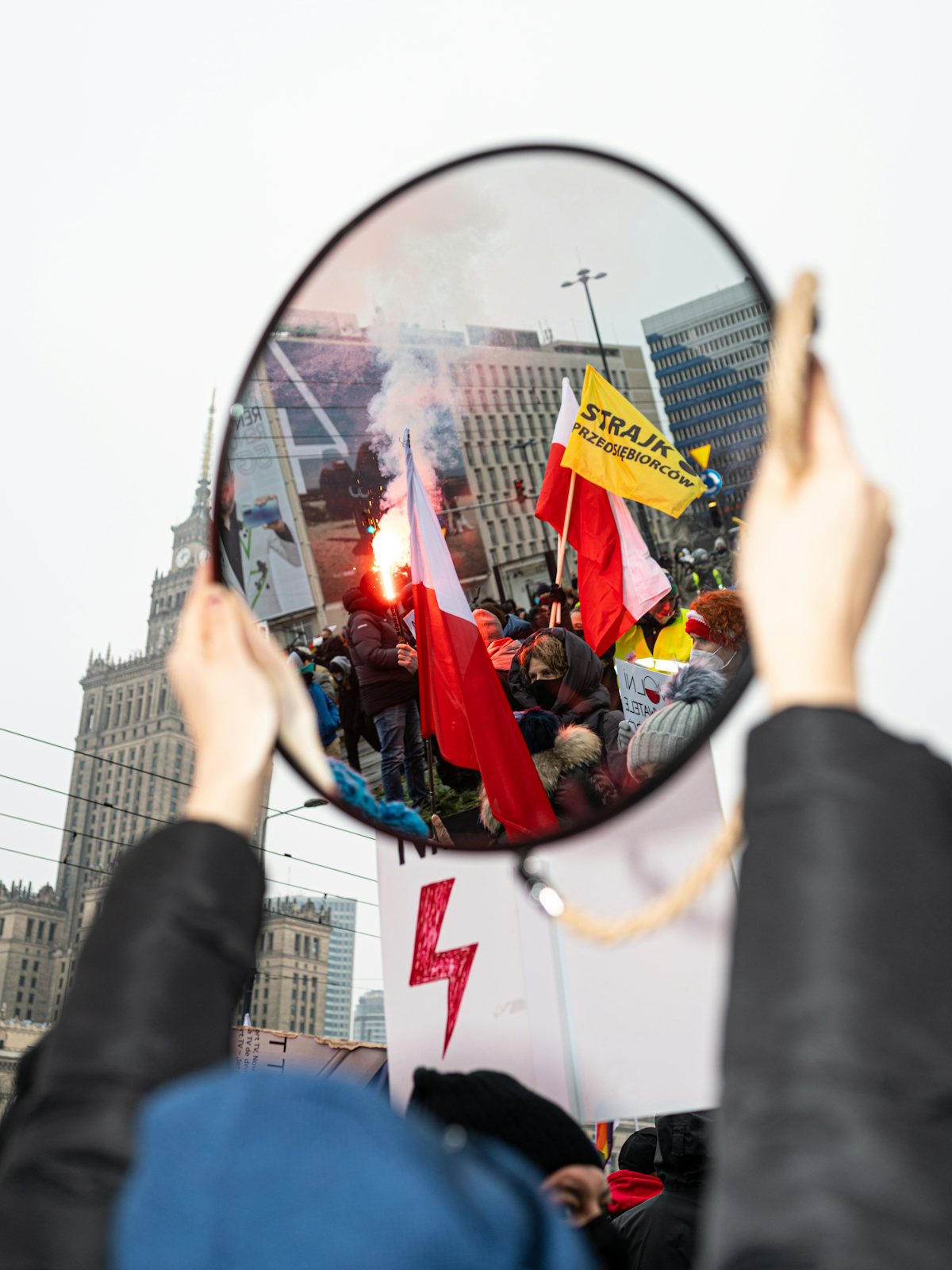In many ways, the worst has already happened in Poland. In October 2020, the country’s constitutional court, which is closely aligned with the conservative Law and Justice party, made abortion on the grounds of fetal defects—since 1993, one of the last available avenues for a legal abortion—illegal. Since then, activists have mobilized to help women access care in other ways, often by helping them leave the country. Kamila Ferenc, a lawyer for Federa, the Warsaw-based Federation for Women and Family Planning, explained the networks that have been created to maintain, wherever possible, women’s reproductive rights. This conversation has been condensed and edited for clarity.
TNR: Can you describe what the situation is for women right now in Poland who wish to access an abortion and how it has changed over the past few years?
KF: In October 2020, the Polish constitutional court declared that abortion in cases of fetal abnormality was unconstitutional. This judgment went into force on January 27, 2021. Now there are only two ways of having an abortion in a public hospital for free on legal grounds: rape and danger to a woman’s life. But even in those two very narrow cases, there are a lot of barriers: the conscience-based objection of the doctors, some bureaucratic requirements, some unlawful requirements that physicians make of the pregnant women—many, many such things. But the one optimistic thing in this whole picture is that the pregnant person is never criminalized for their own abortion. So in fact pregnant persons can reach abortion outside the Polish health care system, they can order abortion pills from abroad from foreign organizations such as Women on Web or Women Help Women, or they can go to abortion clinics abroad.
You mention there is a loophole in the abortion ban for danger to a person’s health or life. But nonetheless, women have died because they have not been able to access abortion in time.
We have documented or reported three cases of maternal death of a pregnant person because they didn’t receive medical health care, which means abortion, on time. This is a chilling effect after the judgment of the constitutional court in Poland. Doctors—even though they have the legal basis to perform abortions—refrain from doing so. They prefer to wait, because they think that performing abortion, even if it’s legal, means huge problems when it comes to their professional career: criminal charges, pro-tests from the hospital, and of course protests by anti-abortion organizations. Very often we have recorded cases when dangerous pregnancies—for example, ectopic pregnancy—are not interrupted. Doctors want to wait for natural miscarriage, because abortion is so stigmatized.
You mention that one of the recently closed loopholes had to do with fetal abnormality. Does that mean that doctors don’t look for abnormalities anymore in their patients?
Sometimes patients can hear, “You don’t need to undergo any clinical tests, because there is no point. You cannot interrupt the pregnancy once you get the results.” Or, “You need to give birth to a child anyway, so you don’t need any prenatal tests.”
Can you describe how this battle against reproductive rights fits in with the larger picture of gender rights in Poland?
Poland’s ruling conservative party, Law and Justice, really promote and concentrate on anti-gender, anti-women’s rights policies. And to me, these are also anti-family policies. They say they are pro-family, but in practice, it is against family when families don’t feel safe to have more kids, for example. This is the problem right now. We answer calls from women who ask us if it is safe to get pregnant right now in Poland. We can see it in many spheres of social life. For example, if you want to have kids, you have to give birth to them, you go to the labor ward in the hospital, and you are treated like meat, like an incubator. There is a lot of violence in gynecological wards in hospitals, poor infrastructure, poor treatment, and so on. If you would like to have kids, but you cannot for some medical reason, there is no central reimbursement from the state budget for in vitro fertilization. So once again, nature is more important than what you want. If you cannot biologically have kids, you have to deal with that. Next step, poor access to contraceptives, to sexuality education, to prenatal tests, to abortion. It’s all about control over women’s bodies, over our reproductive health. But also when it comes to violence, gender-based violence, we have poor standards and practice. Gender-based violence is ignored. Women all in all are treated as something less important than anything else.
How many women get abortions in Poland now?
Official statistics show that there are only around 1,000 abortions per year. These are abortions that were obtained at public hospitals. But the real number of abortions is much bigger. [More than 34,000, according to Abortion Without Borders, which calculates this figure from the number of people who have sought help through Women Help Women and other organizations that provide abortion access.] Polish law doesn’t cover the need to interrupt the pregnancy when it is an unwanted pregnancy. Even if you have reason to have abortion in a public hospital, sometimes you encounter such big barriers that some people resign themselves from trying to get access in the public hospitals and just leave the country, for example. So that’s why we have such big numbers when it comes to the statistics about abortions outside the systems. This is the real way of accessing abortion.
You have been filing cases for the European Court of Human Rights about this.
Right now, women who left the country and went to abortion clinics abroad and, most of all, paid for it, contact us. We claim before the European Court of Human Rights that their rights as a human being were violated—the right to be free from cruel treatment, from discrimination, the right to private life—because they had to leave their own country, give money, pay some emotional price in such a difficult situation. Denying help in such a difficult situation is really cruel, inhuman treatment—it’s degrading to force your own citizens to leave the country and seek help in another jurisdiction. We want to put huge financial pressure on the Polish government. The judgment in fact doesn’t mean anything to Poland. There are no direct sanctions for not implementing the judgment. The Polish government doesn’t bother themselves with that. But once they have to pay huge sums of money and pay a lot of such applicants—right now we have around 20 or 30 such cases pending and waiting to be examined—the scale of the financial pressure will be huge. This is something that could really help.
A few years ago, there were legendarily large pro-reproductive rights protests across Poland. Has that activism been sustained?
We feel the burnout, and we see fewer people in the streets. But we also believe that it is impossible to sustain this kind of social mobilization all the time, and we need to have something really strong to use the anger of the society. At the same time, we can see the change of social views on abortion. People are becoming more and more in favor of liberalization of abortion law, for example. I think people are realizing and starting to observe more and more that things are not going well in the country, and maybe that’s why they still are ready to organize themselves and protest.
An activist in Poland was recently put on trial for sending abortion pills. She is facing criminal charges.
Helping in Poland is easy until you remember the rules: You cannot give somebody pills. Of course, this is difficult when you see somebody in need. In fact, the Federation for Women and Family Planning [where Ferenc works] helps only by giving information and advice or dealing with legal help. This is legal. We are not afraid that we are doing something that we can be prosecuted for. But on the other hand, you never know with this government. So the situation is not so easy. It is very stressful, because you never know what will happen. You can help without taking a risk. Or you take a risk, and you are conscious that this is the sacrifice you made to change the system.










